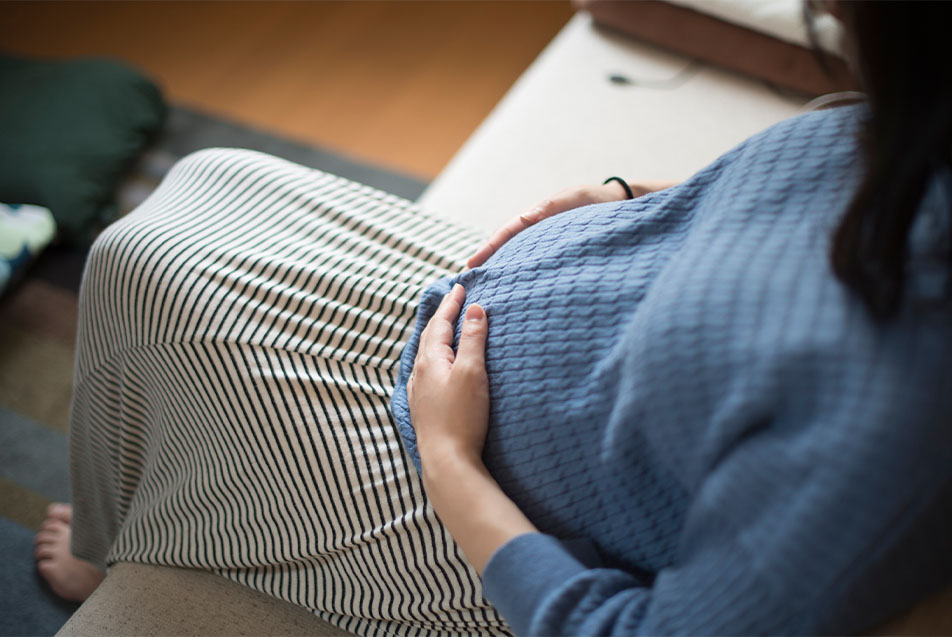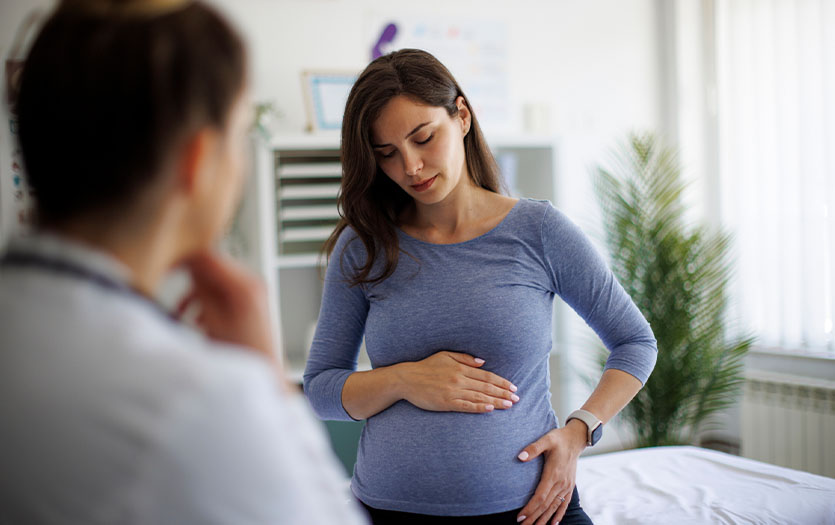
While an HIV diagnosis doesn’t mean you can't have children, there is an increased risk that you may pass the virus to your baby during pregnancy, while in labor, while giving birth or by breastfeeding. For this reason, and in honor of National Women and Girls HIV/AIDS Awareness Day, we asked Robyn Schmucker, MD, PPG – Pediatric Infectious Diseases, to explain what HIV is, the importance of testing and several precautions mothers can take to lower their risk of transmitting HIV to their unborn child.
What is the human immunodeficiency virus?
The human immunodeficiency virus (HIV) is a virus that attacks the body’s immune system, destroying vital cells that fight off disease and infection.
How does someone become infected with HIV?
The two most common ways people contract HIV are through sexual intercourse or the sharing of needles or syringes with an infected person. Additionally, while it’s not as common for healthcare workers to become infected with a contaminated needle stick, it is possible.
HIV does not survive long outside the human body and cannot reproduce outside a human host. This means that HIV cannot be transmitted
- by mosquitoes, ticks or other insects
- through saliva, tears or sweat
- by hugging, shaking hands, sharing toilets, sharing dishes or through “social” closed-mouth kissing with someone who has HIV
- through the air
Is there a treatment or cure for HIV?
Currently, there is no cure for HIV, but antiretroviral therapy (ART) or medication can help control the virus and reduce someone’s viral load or the amount of HIV in the body. For example, a person’s viral load is highest when they are first infected due to the amount of HIV present in the bloodstream. However, once an individual starts taking the HIV medication, the hope is that the medicine will help decrease the virus’s replication, thus reducing an individual’s viral load.
With that said, it’s important to note that even if a person’s viral load is undetectable, they still have HIV. The infection is just in much smaller amounts within the body. So, if someone were to stop taking the antiretroviral medication, the HIV would begin to replicate again, and they’d be right back where they started.
Do women need to get tested for HIV if they are pregnant?
Yes, HIV antibody testing, along with other screenings, is a routine part of prenatal care. The testing helps pregnant women know if they are infected with HIV, allowing them to begin treatment as soon as possible. Immediate treatment is not only beneficial to the mother but also helps lower the risk of transmission to the baby as well.
If a mother is living with HIV and pregnant, can they pass it on to their child?
Yes, there is a possibility of transmission, but because of the treatments and protocols we have in place now, the risk of passing HIV from mother to baby is less than 1%. Compared to the ‘90s, the transmission risk to an infant has decreased dramatically, almost 95%. Additionally, the mother should be on HIV medications that are appropriate during pregnancy. Some medicines are harmful to babies, so women should talk to their infectious disease specialists to find the best regimen. Keeping this in mind, if mom takes her HIV medication and the baby is on medication for six weeks after birth, the risk of transmission is extremely low.
What steps can a mother take to reduce the risk of passing HIV to their baby?
The most important step a mother takes, during pregnancy, to decrease transmission is to take their antiretroviral medications religiously. If they can keep their HIV viral load undetectable, the risk of transmitting to the baby is relatively small.
After the baby is born, they will be on a medication called Zidovudine (ZDV), also known as azidothymidine (AZT), until six weeks of age. Then, we’ll test them for HIV through 18 months of age while also making sure the baby is taking the medications as scheduled and getting all the appropriate follow-up testing done as well.
Another precaution mothers can take to prevent the transmission of HIV to their infants is by avoiding breastfeeding. In the United States, breastfeeding is contraindicated, so when a mother is HIV positive, it is possible to transmit the virus through breast milk.
Is HIV treatment recommended during pregnancy?
Yes, but please speak with your adult infectious disease specialist first. Some HIV medications can be harmful to babies, so mothers should make sure they’re on a regimen appropriate for pregnancy before starting treatment.
After giving birth, how can parents know if their baby has HIV?
Within the first 12 hours of life, a baby will have an HIV test and begin the HIV medication. This protocol is not for treating HIV in the baby but rather to prevent the child from becoming infected. Later, the infant will be tested at two and four weeks of age, again between four to six months of age, and then at 18 months of age. Parents should make sure they keep all follow-up appointments and have the baby tested each time. If the HIV tests are all negative after four weeks, the baby will stop the HIV medication at six weeks. If the HIV tests are positive at any point, then the child should start a three-drug HIV regimen.
Helpful resources
The Center for Disease Control and Prevention has many helpful resources regarding prevention, testing, treatment, care, surveillance and the transmission of HIV. For more information, please visit their page.



